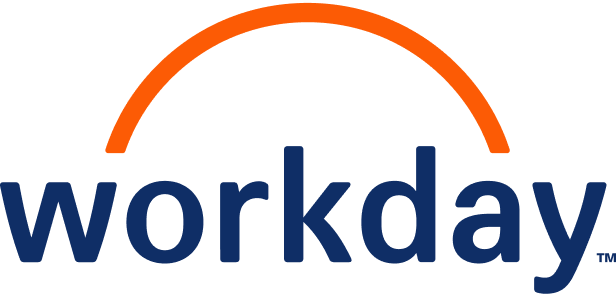
Workday, Inc. is a cloud-based software vendor specializing in financial management, human capital management (HCM), and student information systems.
Workday
Senior UX Designer
Gartner Magic Quadrant & Workday Illuminate 2025
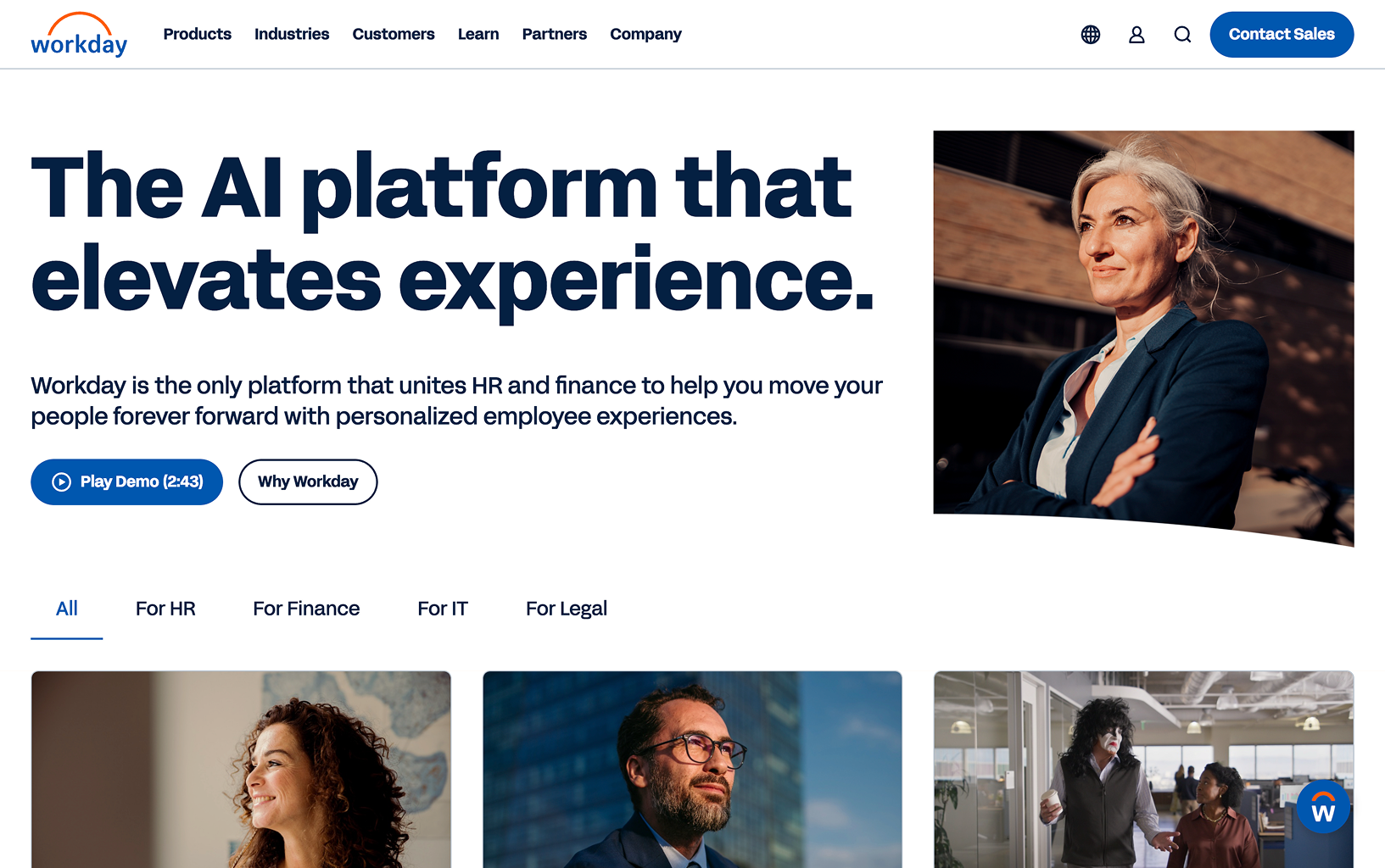
As a UX Designer, I led the design of scenario-driven prototypes showcasing Workday’s AI decision-support capabilities for the Illuminate Developer Conference and 2025 Gartner Magic Quadrant submission. I created interaction patterns and visual assets in Figma that emphasized clarity, accessibility, and alignment with Workday’s strategic narrative. Collaborating closely with PMMs, product, and engineering teams, I ensured that each prototype clearly communicated how Workday’s AI augments enterprise decision-making across core workflows.
Overview
Workday brought me on as a contract UX Designer to support two high-visibility initiatives: their 2025 Gartner Magic Quadrant submission and their 2025 Illuminate conference. Both events were centered around showcasing the next generation of Workday AI. They were looking for a designer who could translate complex AI capabilities into clear, human-centered experiences that resonate with users.
I took the role because it aligned perfectly with my passion for designing at the intersection of emerging technology and real-world usability. Workday’s vision for AI isn’t just about automation, it’s about enabling more intuitive, personalized, and adaptive tools for the evolving workplace.
Contributing to that vision, especially at such a pivotal moment in the company’s innovation story, was an opportunity I couldn’t pass up.
While the foundational research on Workday’s AI capabilities had already been conducted by internal teams, I complemented their findings with my own competitive analysis. I reviewed how leading companies like Salesforce, Microsoft, and ServiceNow are positioning and designing their AI agents—focusing on UX patterns, transparency, and the user’s role in the loop. This helped me identify opportunities to differentiate Workday’s AI narrative and design approach while aligning with industry expectations and emerging best practices.
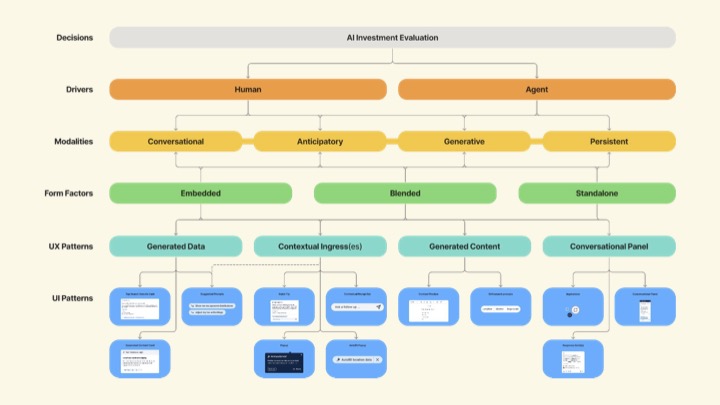
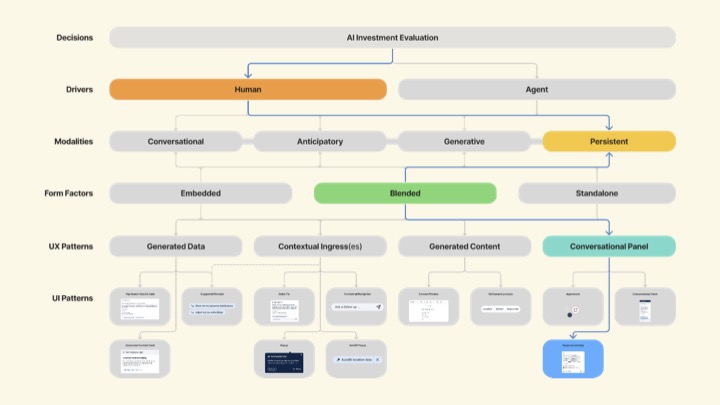
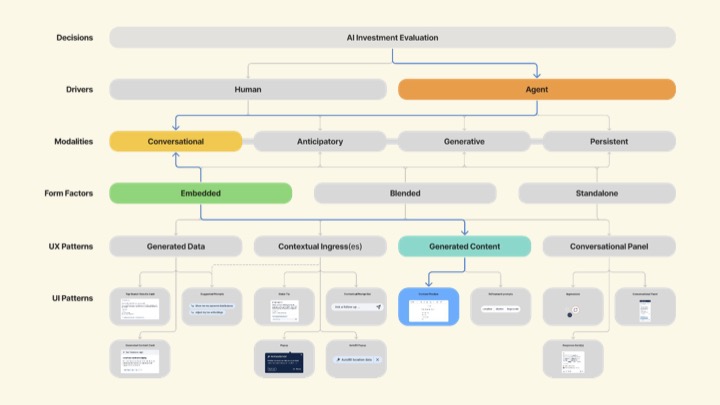
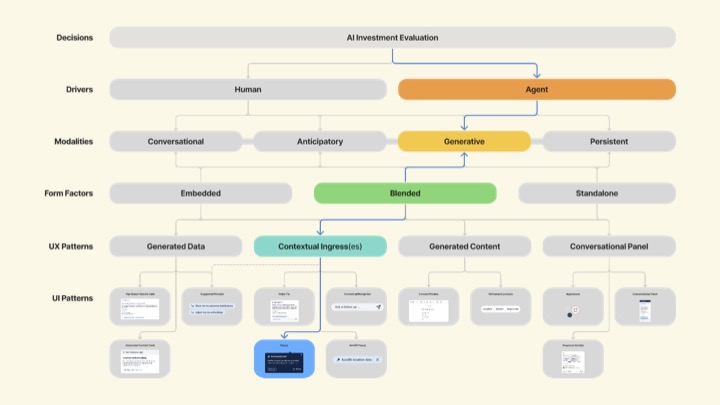
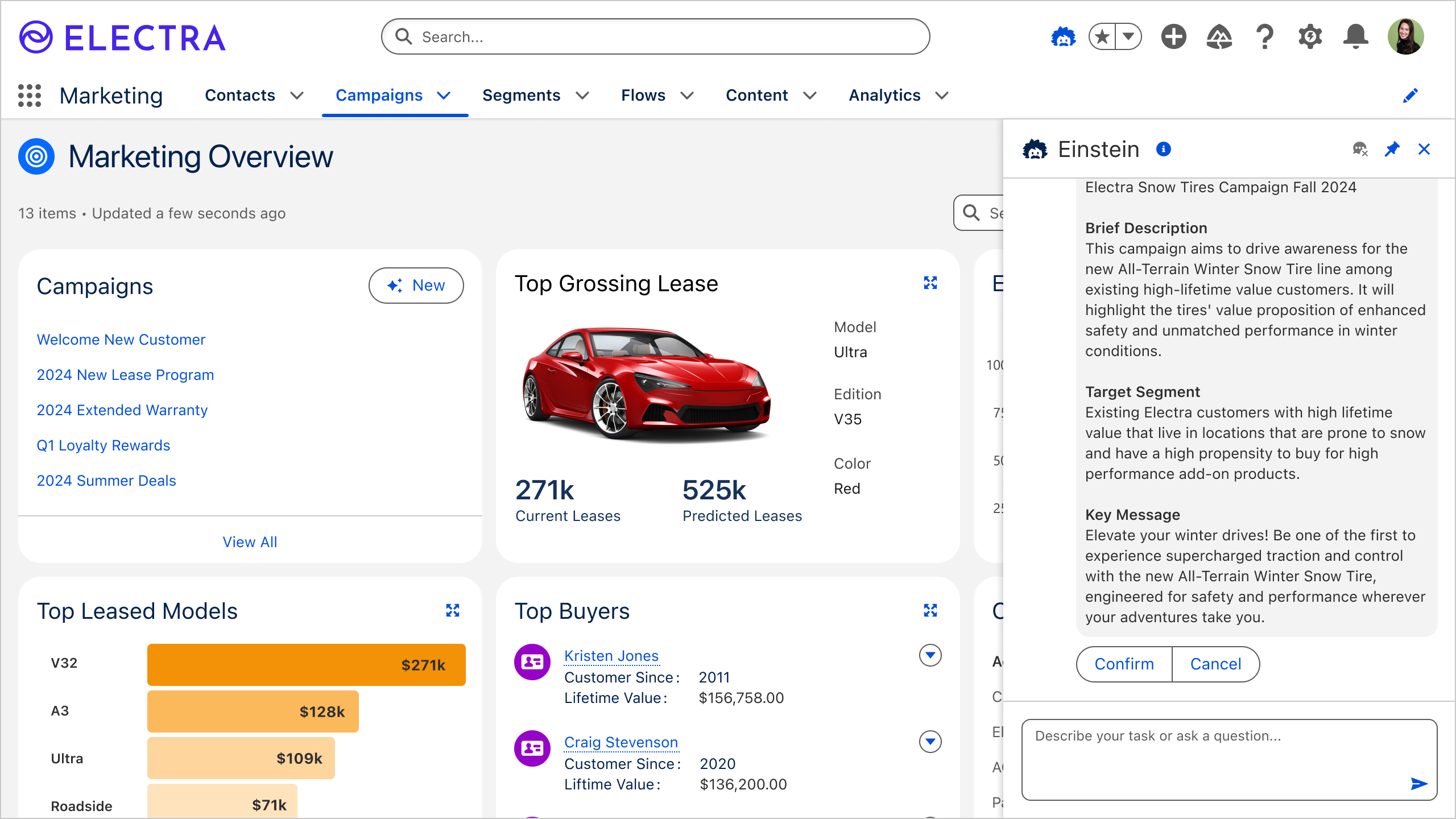
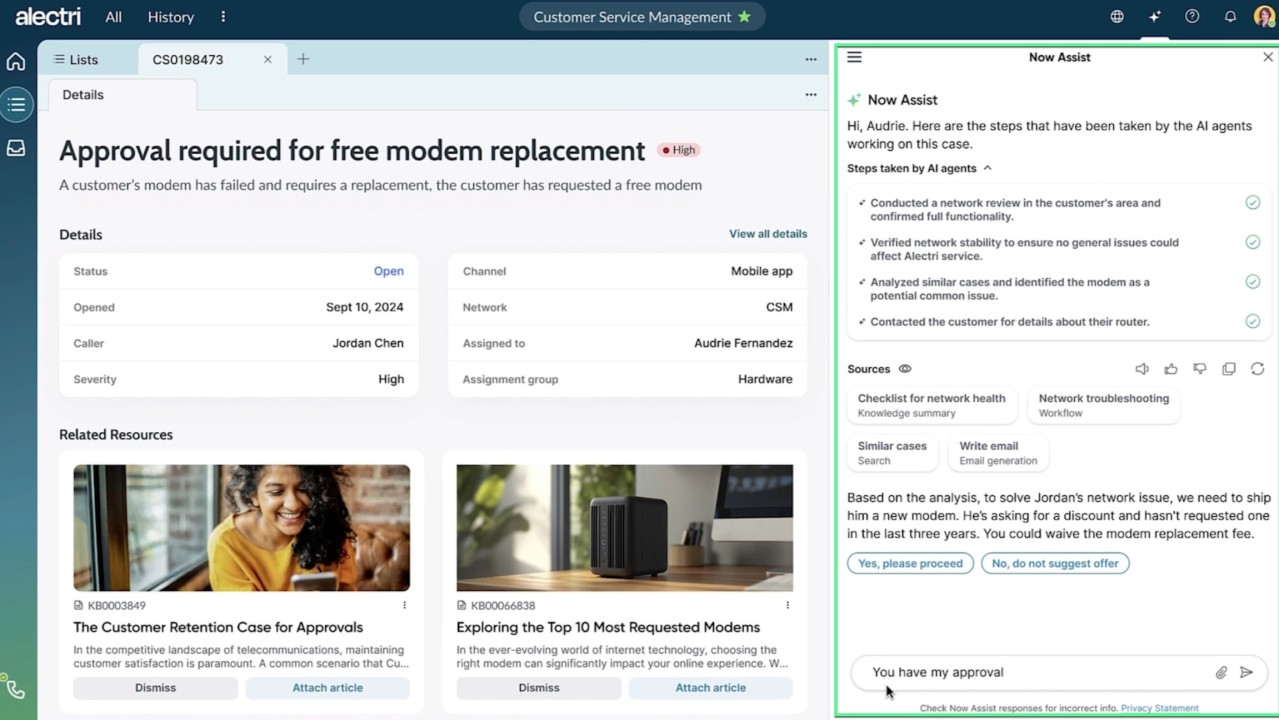
Ideation
In partnership with Workday’s Global Tax Hub team, I led the exploration efforts to redesign key workflows for international tax compliance. Working closely with offshore designers and PMM partners in Ireland, we held a series of structured Figma wireframing sessions to rapidly translate abstract regulatory requirements into clear, actionable UI components. We used shared design libraries and real-time collaborative tools to iterate across time zones
A few hi-fidelity explorations based on requirements while adhering to Workday's design system.
Given the time, I normally try to create a few different approaches based off the requirements.
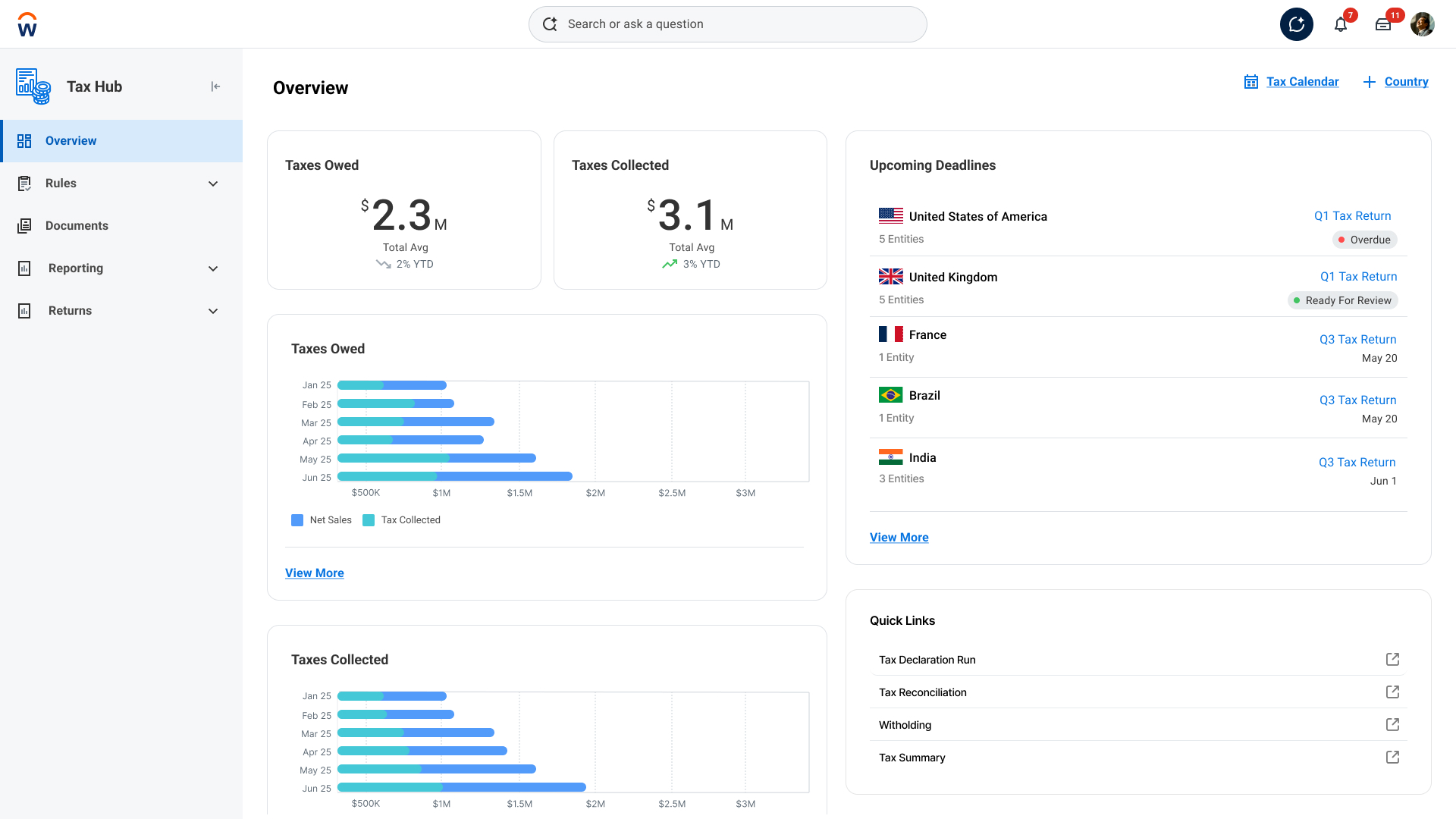
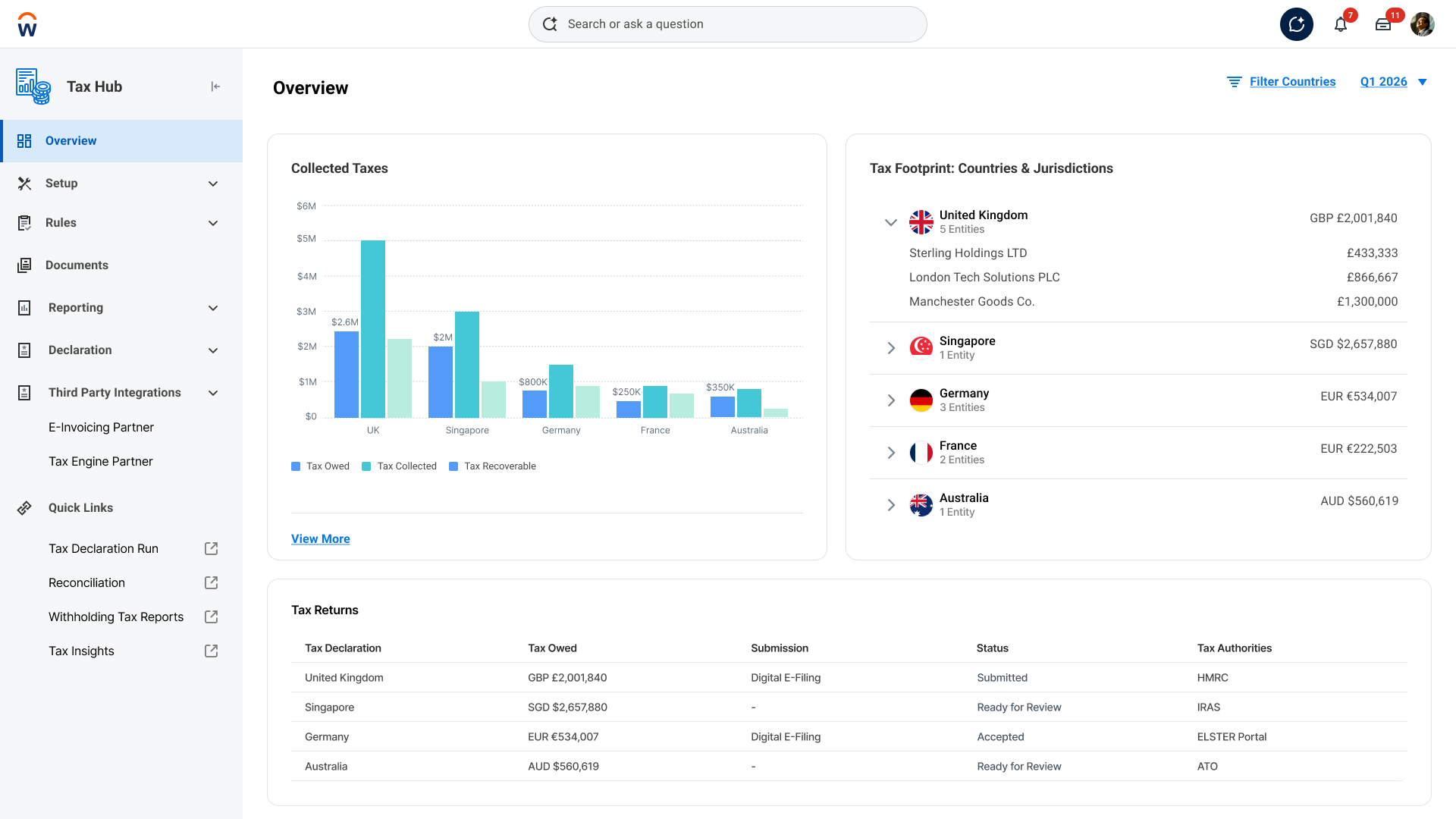
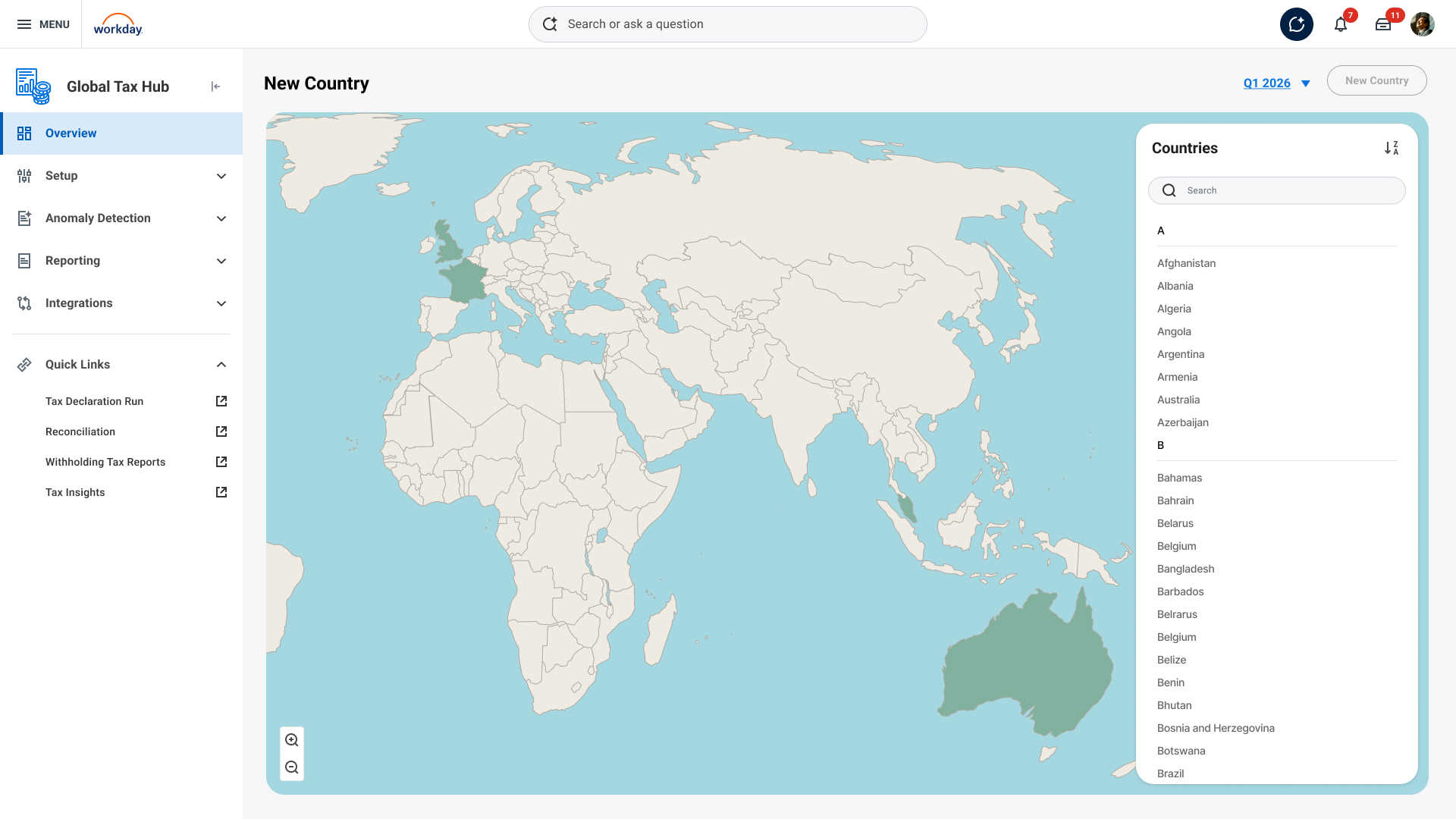
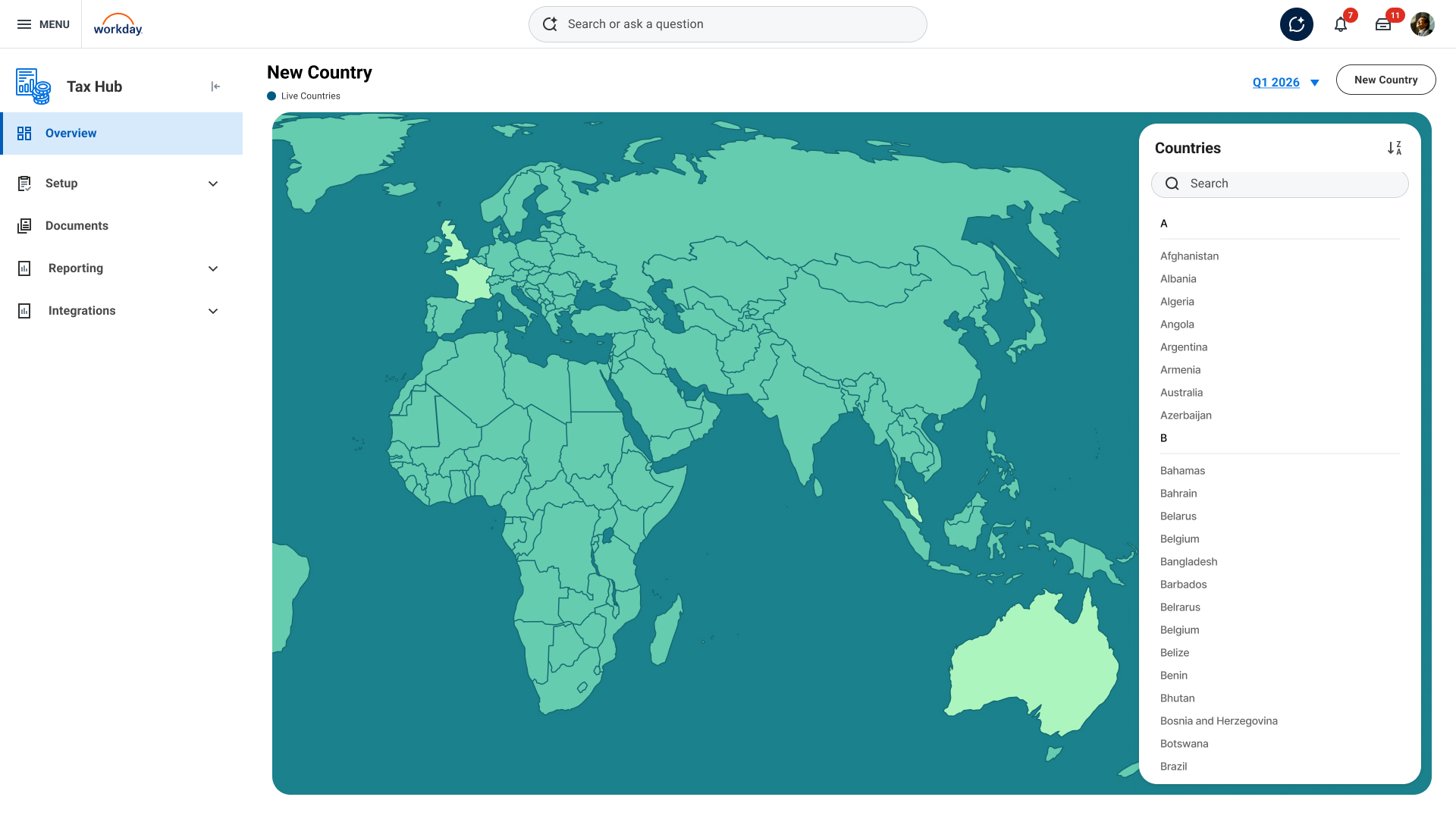
During the design phase, I collaborated closely with PMs and PMMs to iterate quickly and shape a narrative that made complex AI features feel clear and valuable. We used prototypes not just to solve problems, but to tell a compelling story while aligning design decisions with user needs and strategic messaging.
Global Tax Hub Future State
While working on AI decision-support for Workday’s current and legacy systems, I wanted to explore combining embedded and standalone form factors into a blended experience where the conversation panel can reference, control, or respond to GUI elements (and visa versa) for their Global Tax Hub.
In this example, an Agent will be processing invoices and flagging areas where a human needs to intervene, take any necessary action, and quickly move on with their day.
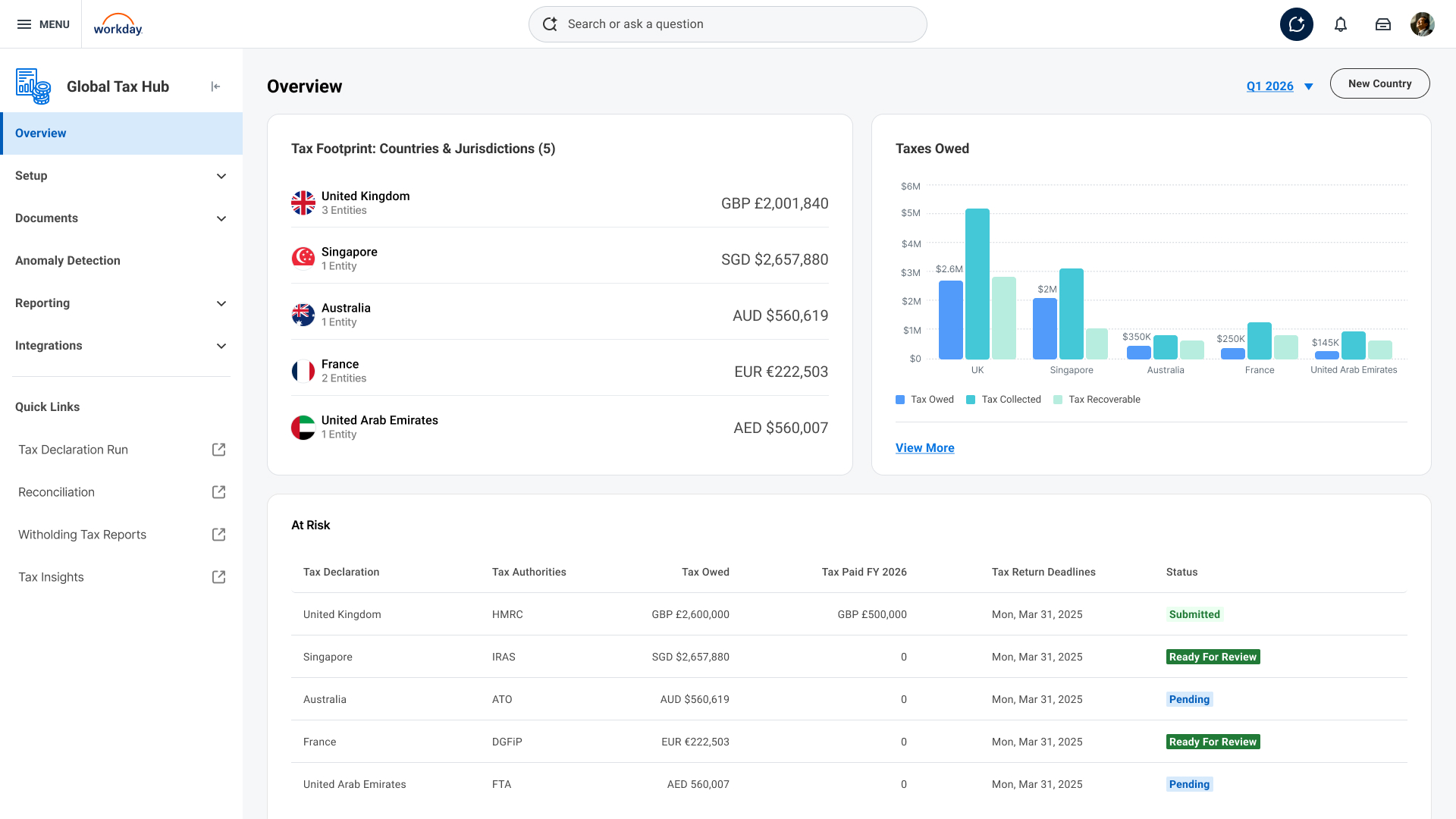
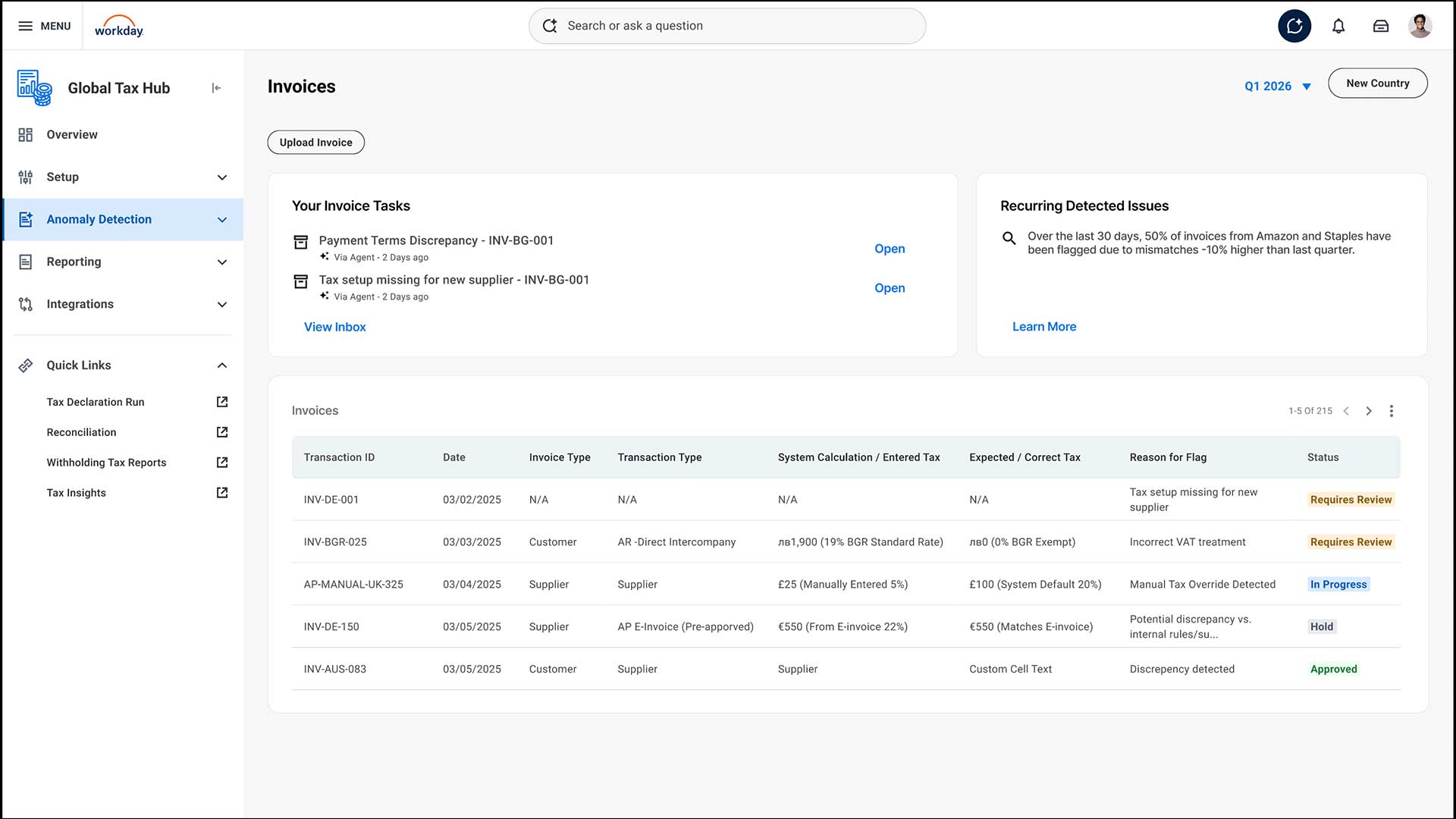
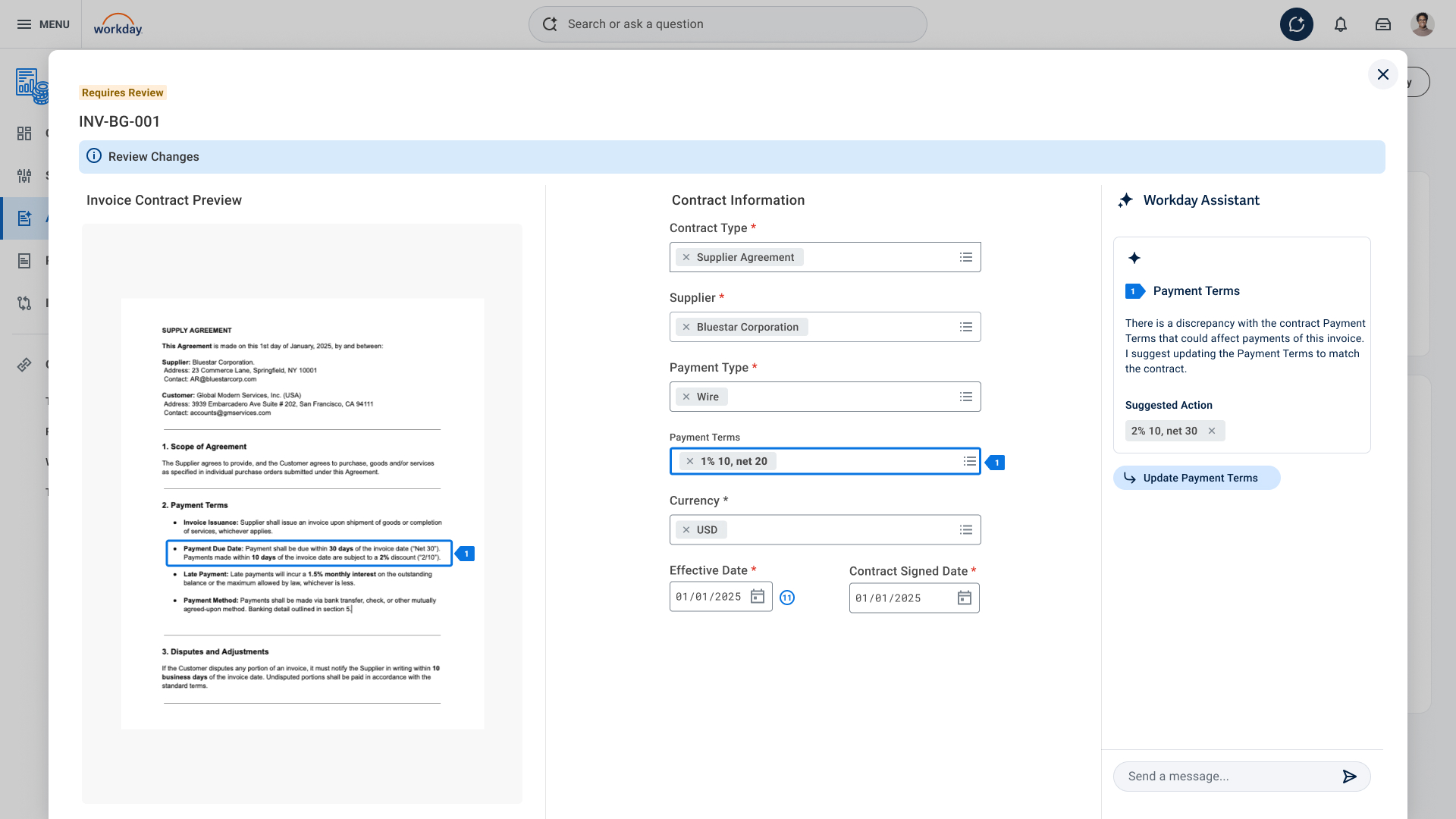
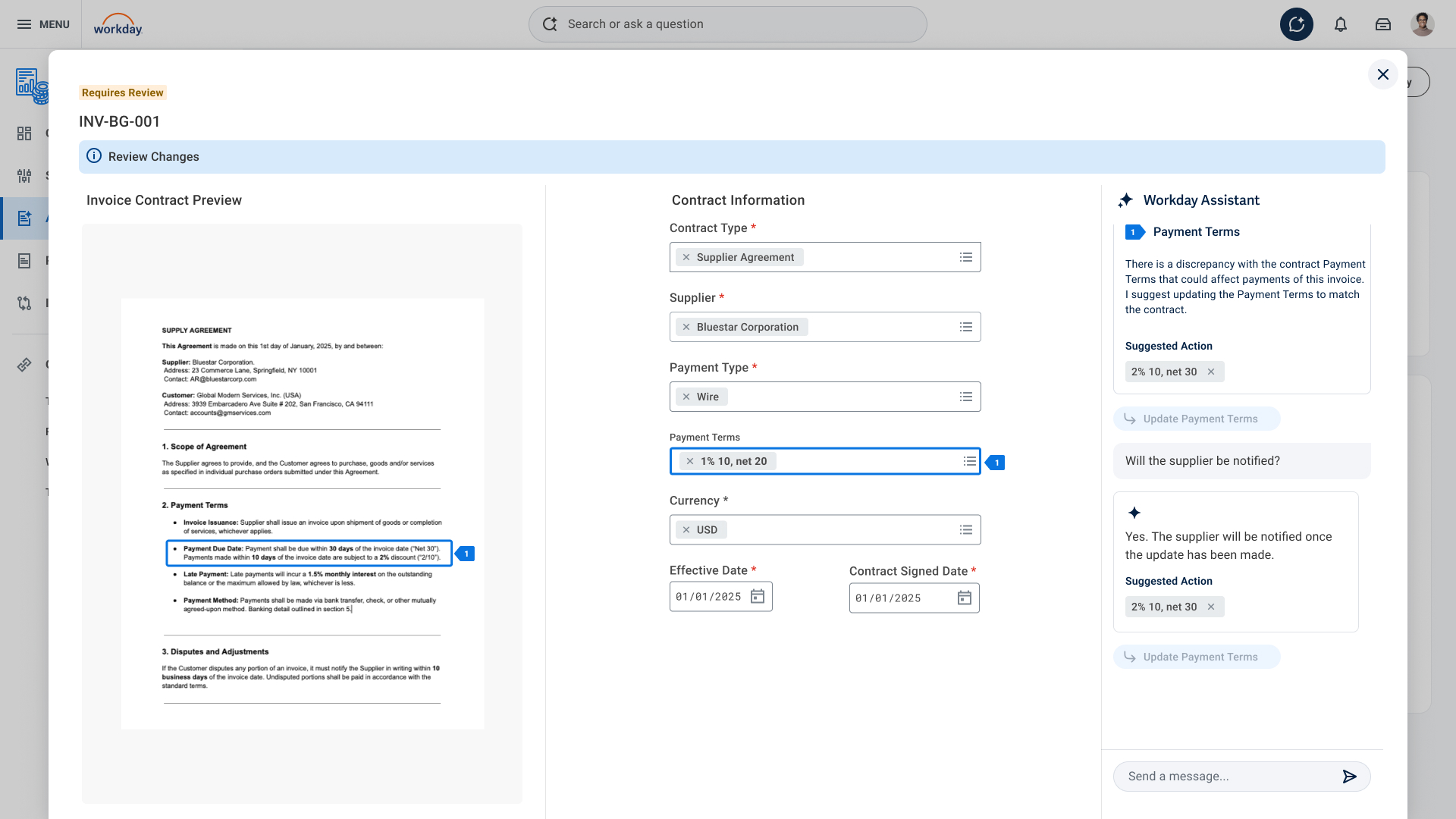
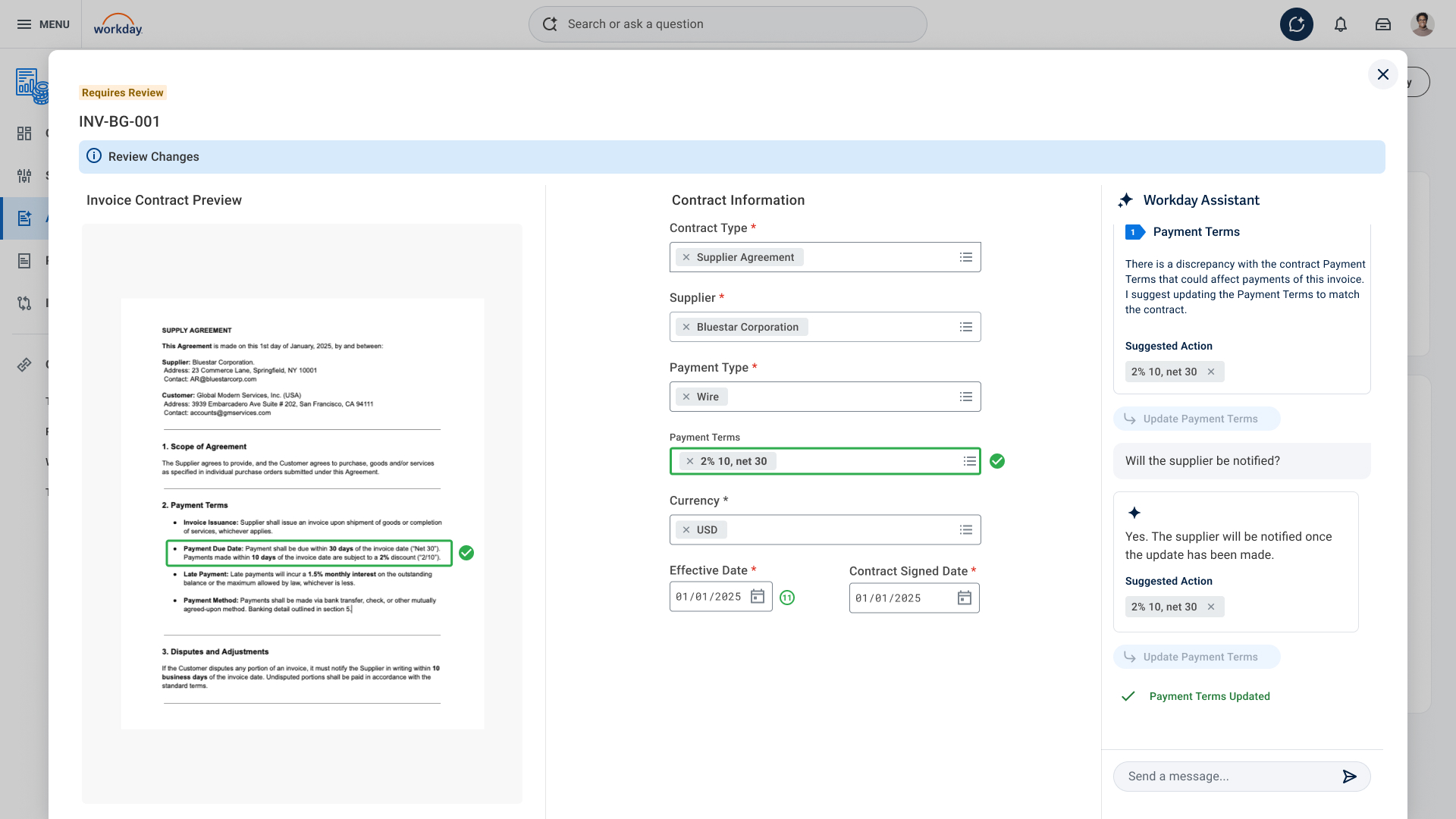
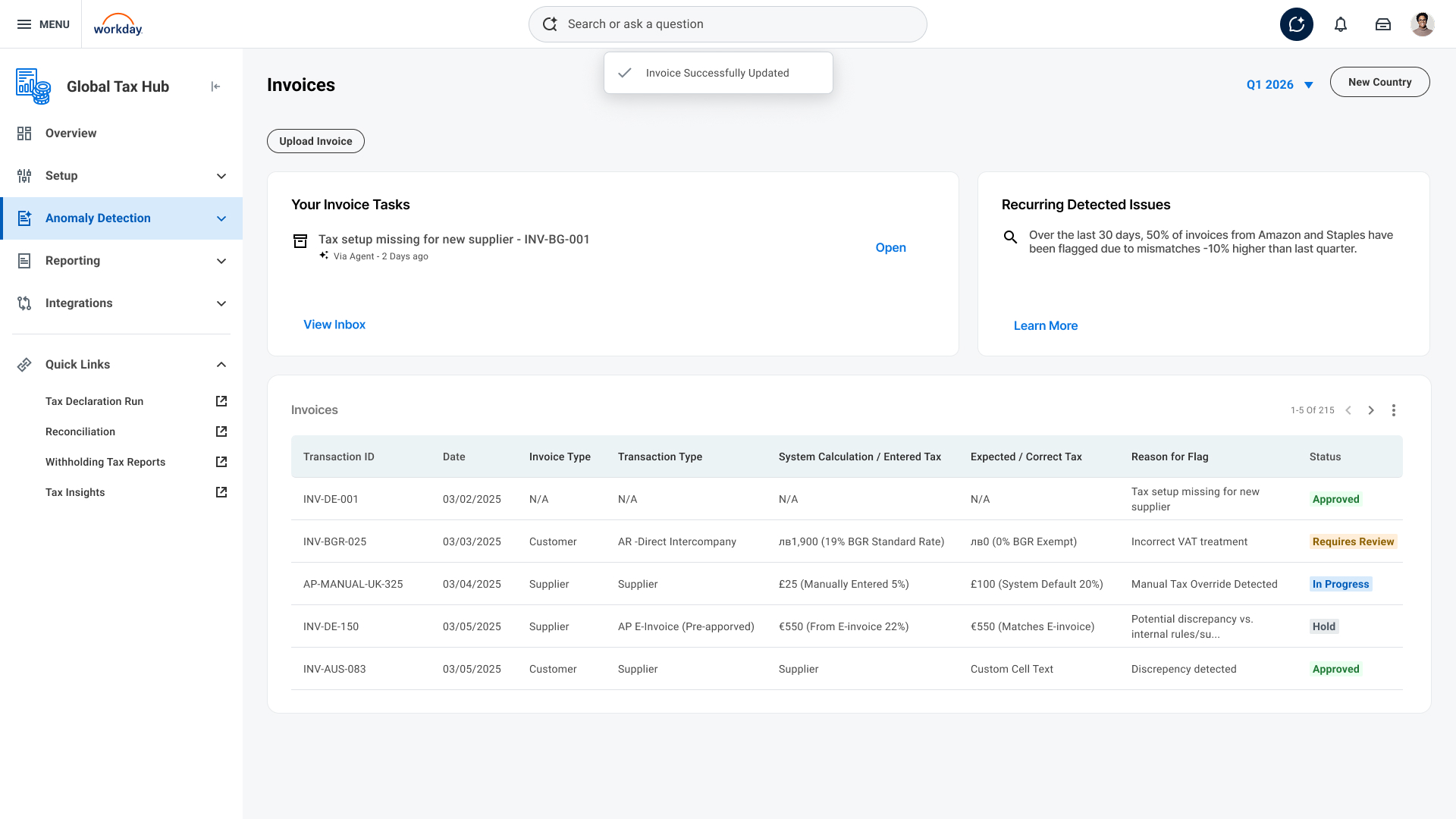
Accounts Payable
At Workday, I improved the invoice processing experience by surfacing the next Auditoria invoice and using ML to link invoice lines to purchase orders. I enhanced customer workflows with annotated invoice field highlighting, autoscrolling, and a dockable PDF viewer. For reviews, I designed agent-assisted exception handling for missing POs and billing errors, and created an aging review tool that categorizes and prompts resolution based on issue type.
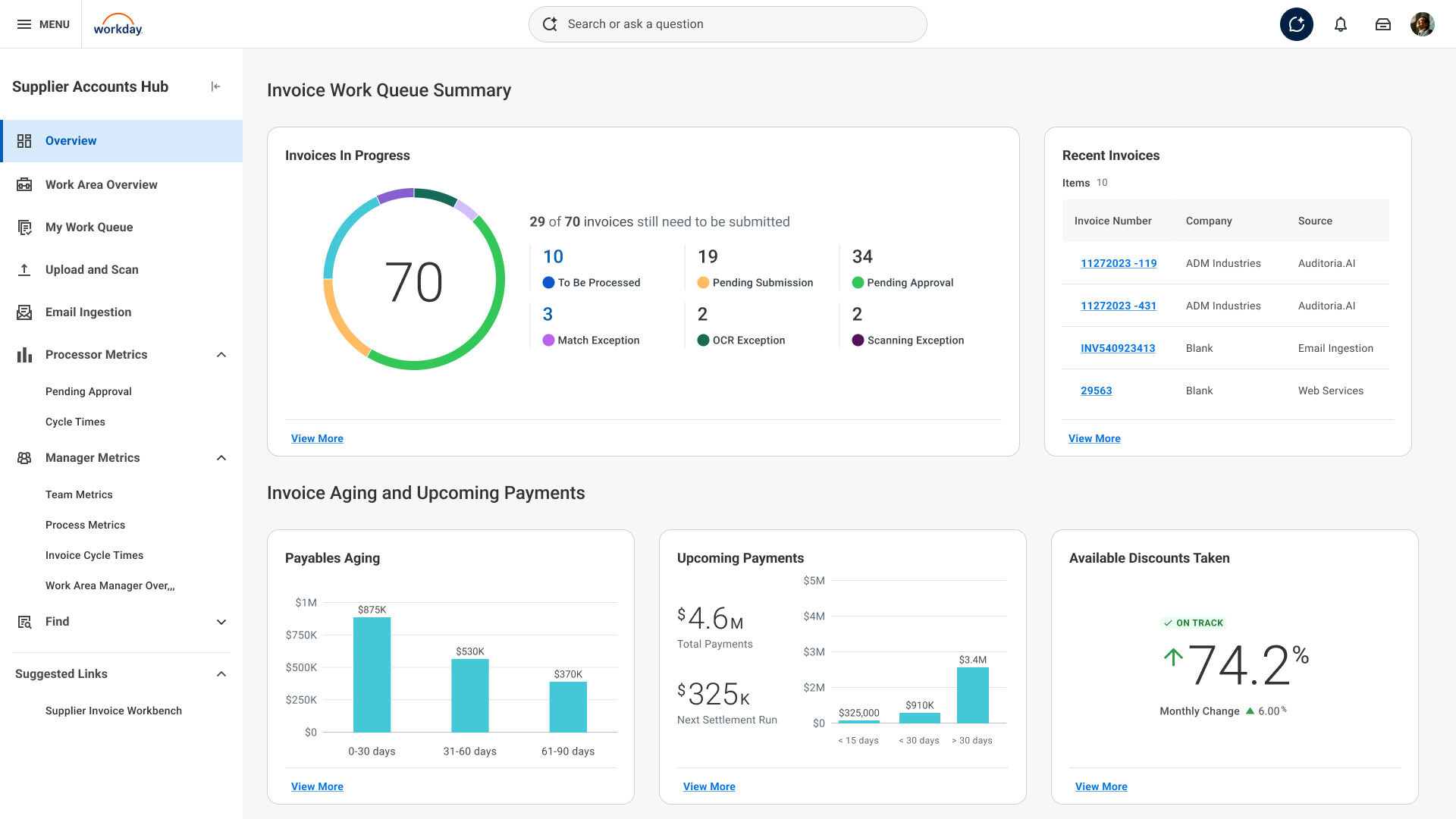
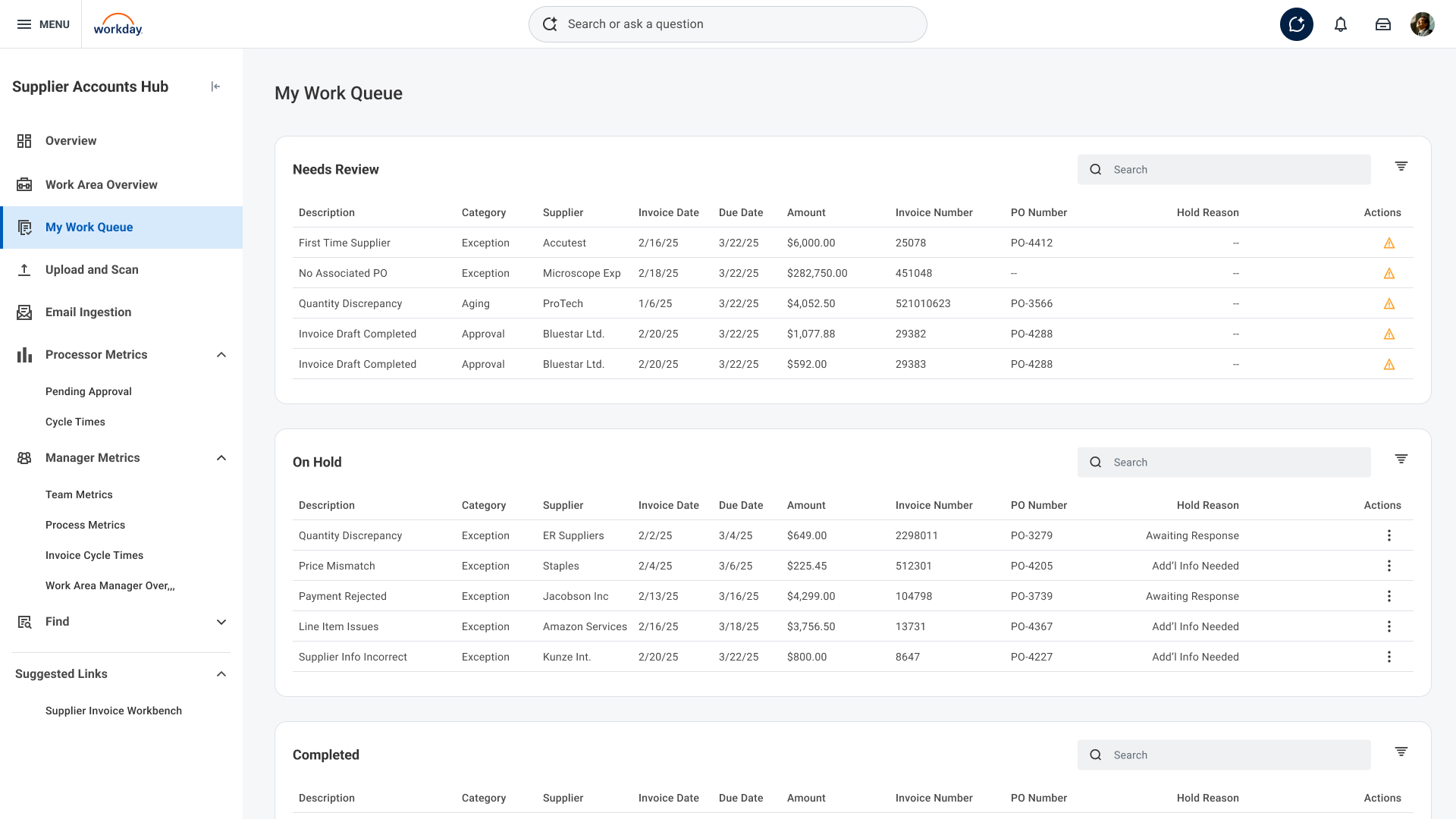
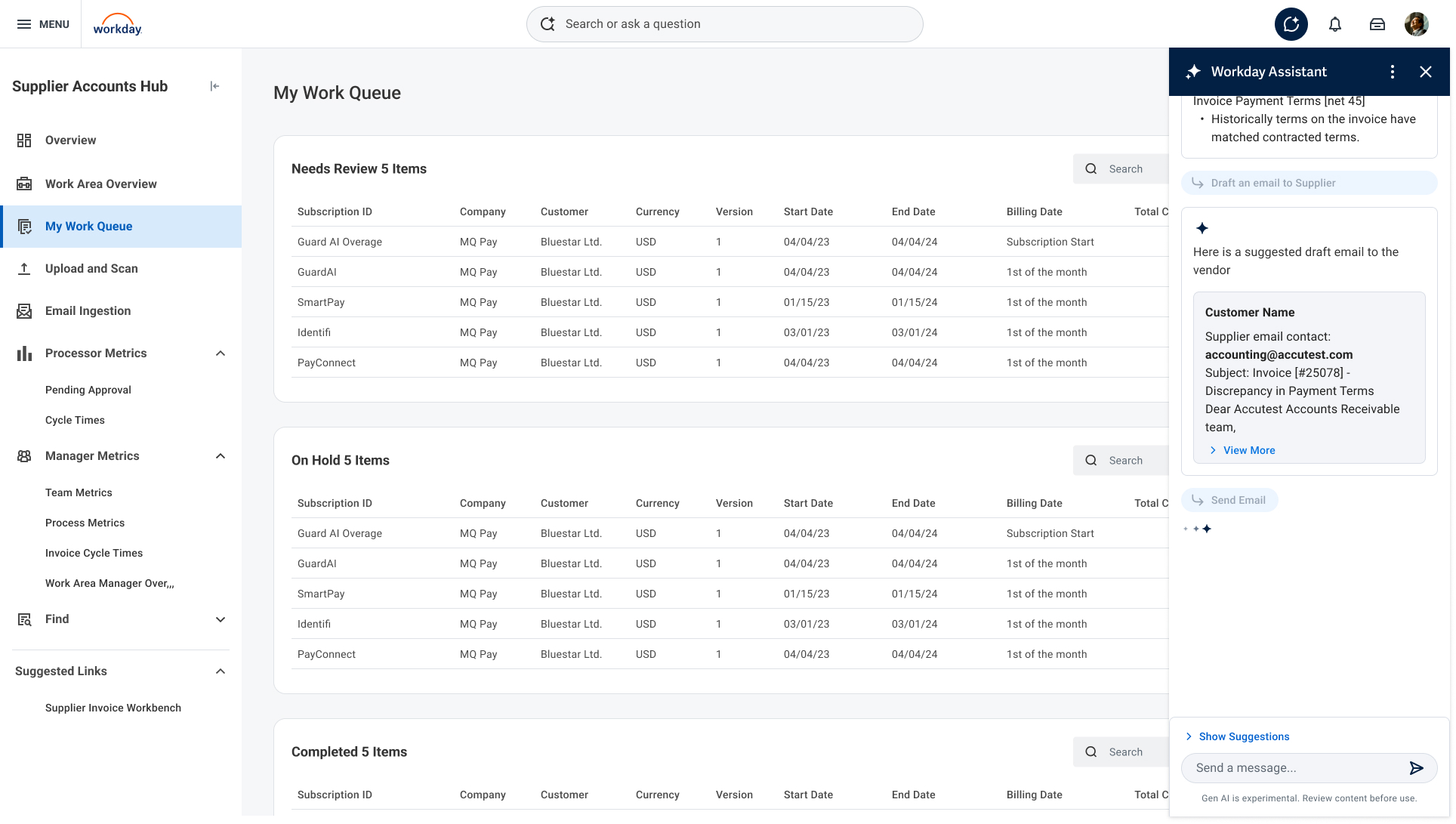
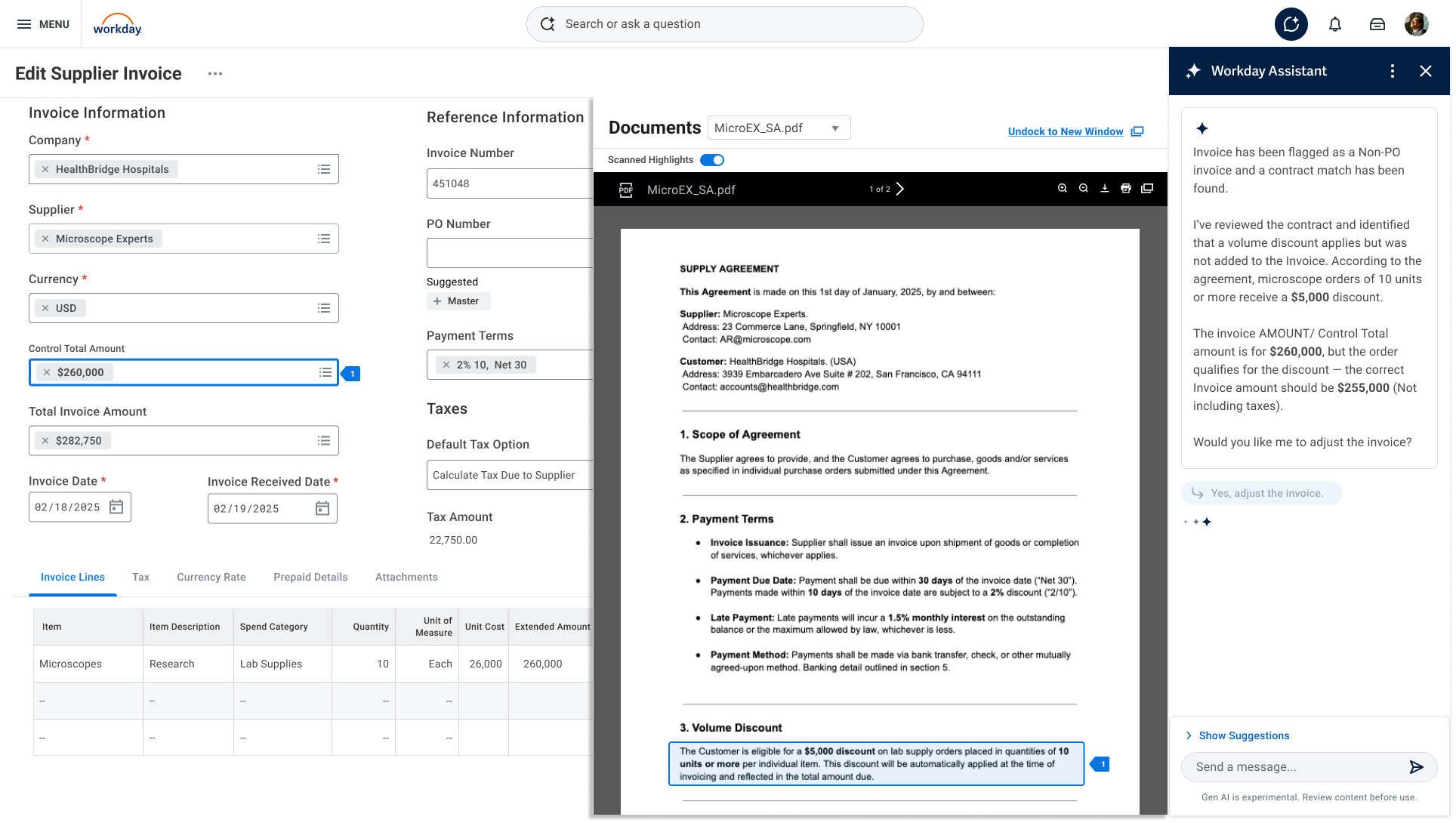
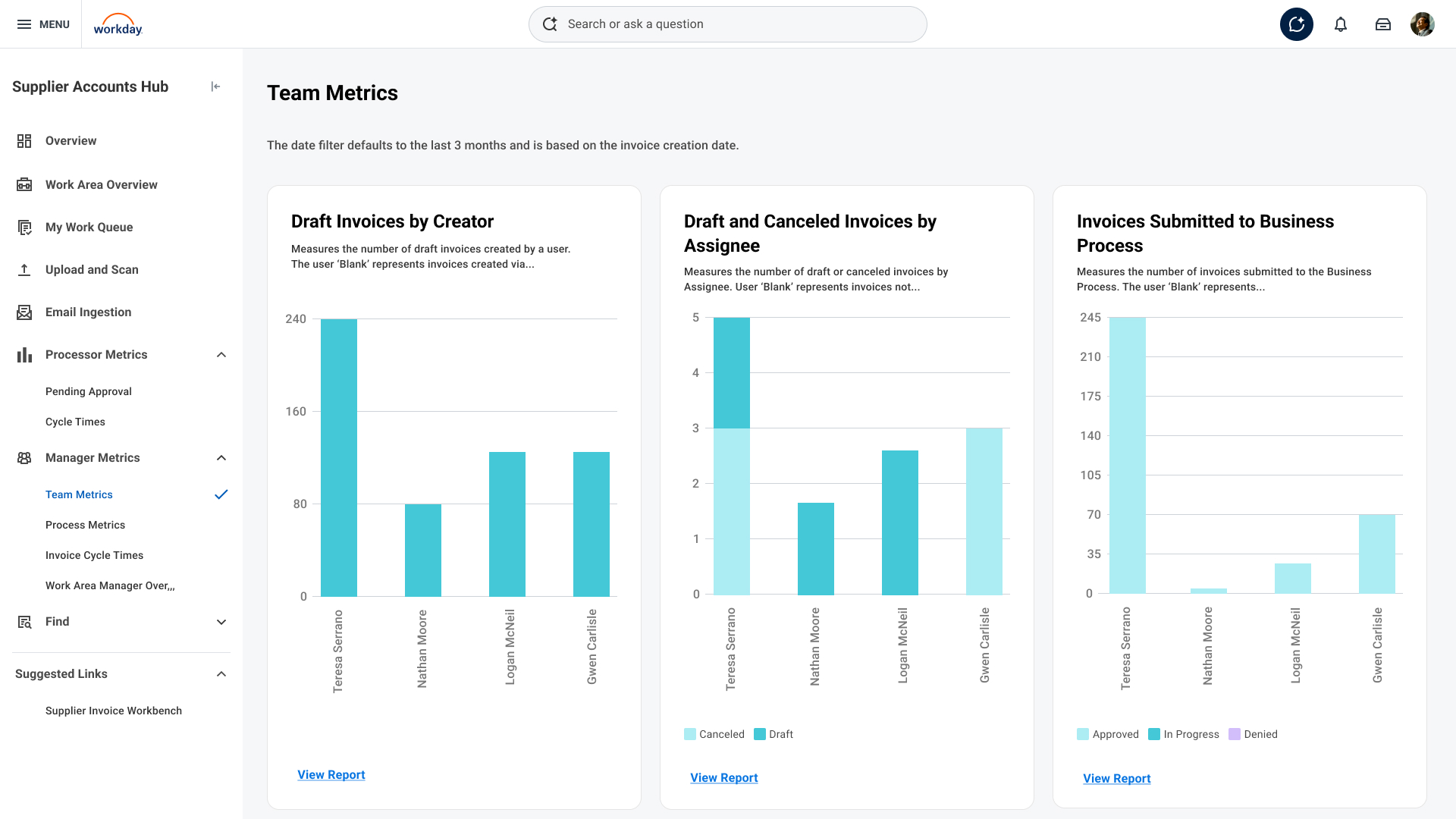
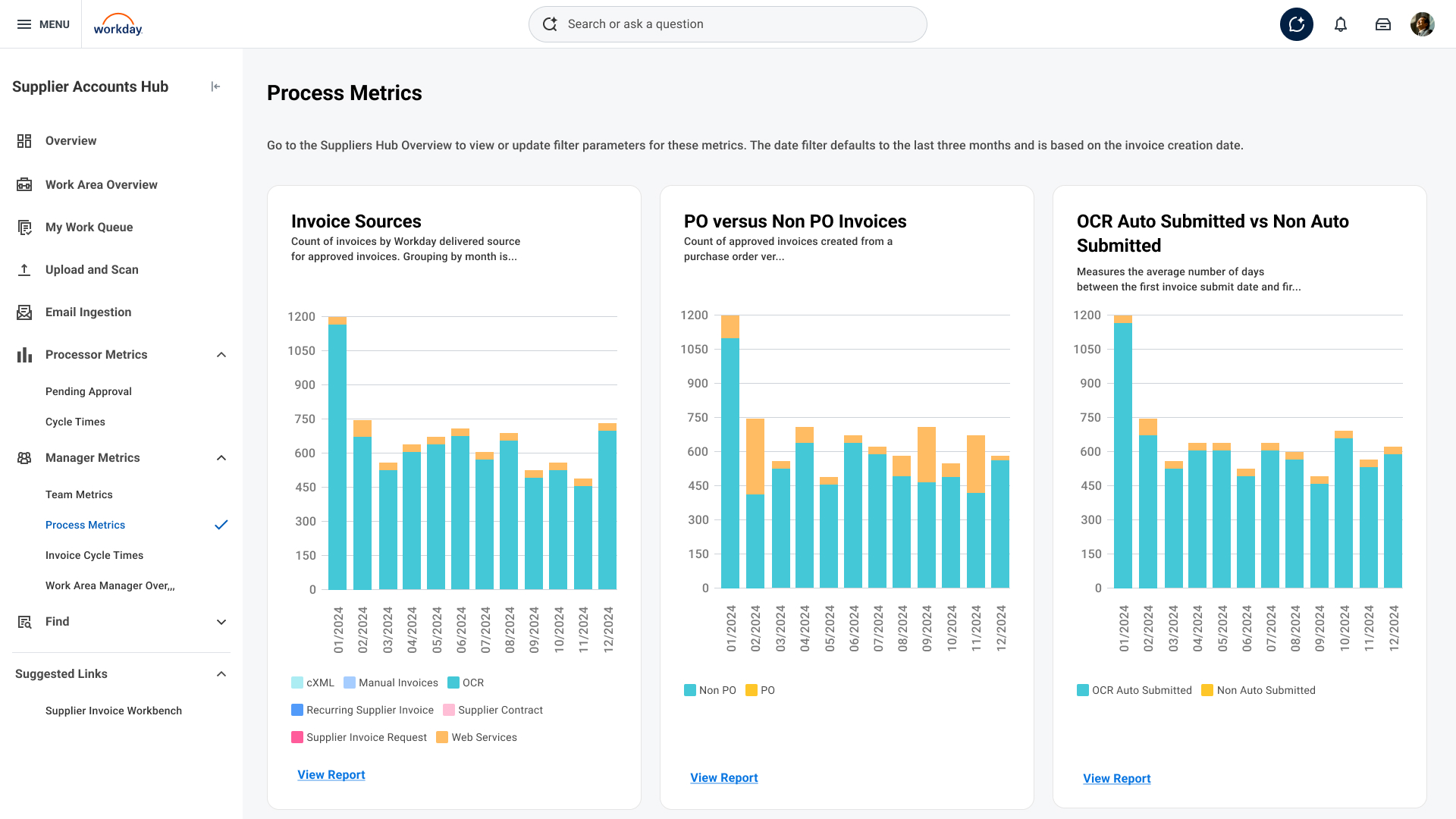
Workday Takeaways
One key takeaway from this project, especially in the context of Workday’s Innovation Summit and Gartner Magic Quadrant submissions, was a reminder that design isn’t just about creativity. It’s about communication.
Working under tight deadlines reinforced how essential it is to align quickly across teams, share context clearly, and stay adaptable. Strong collaboration and open dialogue helped us move fast without compromising quality, turning complex challenges into actionable, high-impact solutions.
